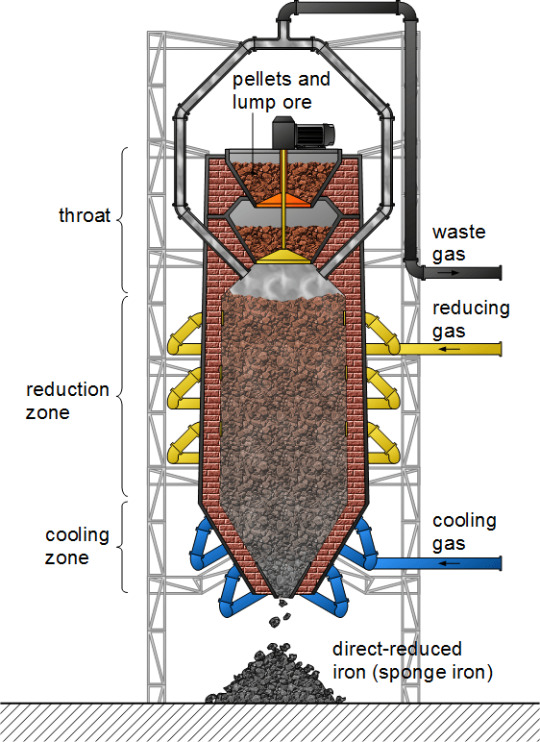#OffGridPower
Explore tagged Tumblr posts
Text
Why the 12V Lithium Battery is a Game-Changer for Portable Power – Powered by LifePO4 OZ
In the world of portable and off-grid power, the 12V lithium battery has become the go-to solution for Australians seeking reliability, efficiency, and long-term performance. Whether you’re powering a caravan, 4WD setup, boat, or an off-grid solar system, the 12V lithium battery delivers consistent energy without the drawbacks of traditional lead-acid options.
At LifePO4 OZ, based in Queensland, Australia, we specialise in advanced lithium iron phosphate (LiFePO4) technology that redefines what a 12V battery can do. Our 12V lithium batteries are lighter, charge faster, last longer, and are far more efficient — making them perfect for both recreational and professional use.
Each battery comes equipped with a built-in Battery Management System (BMS) that protects against overcharging, deep discharging, short circuits, and temperature extremes. This means you get reliable performance, longer lifespan, and greater safety across every use. With thousands of charge cycles and minimal maintenance required, a LifePO4 OZ 12V lithium battery is an investment in energy independence and convenience.
Whether you’re heading off-grid for the weekend or setting up a permanent power solution, trust LifePO4 OZ to power your journey with a dependable, high-quality 12V lithium battery.
#12VLithiumBattery#LifePO4OZ#OffGridPower#CaravanBattery#SolarStorage#PortableEnergy#QueenslandEnergy
0 notes
Text
Buy 10kW Off Grid Solar Inverter in India – Reliable Power Solution
Looking for a 10kW Off Grid Solar Inverter in India? Choose high-efficiency, durable inverters for uninterrupted power in homes, farms, and businesses. Ideal for remote areas, low maintenance, and long life. Save on energy bills while going green with advanced solar technology. https://www.sungarner.com/products/rooftops/solar-off-grid.php
0 notes
Text

How to Solve Your RV Power Problems – Off-Grid Energy Guide
Traveling in an RV is all about freedom—until you run out of power. Here’s how to keep the lights on, fridge running, and devices charged, no matter where you park:
1. Solar Power: The Ultimate Off-Grid Solution
☀️ Portable Panels – Flexible & easy to set up, perfect for boondocking. 🔋 Lithium Batteries – Lightweight, long-lasting, and charges faster than lead-acid. ⚡ Solar Generators – All-in-one systems (like Bluetti or EcoFlow) for plug-and-play power.
2. Dual Battery System: Backup for Reliability
🔌 Deep-Cycle Batteries – Dedicated house battery to avoid draining your starter battery. 🔄 DC-DC Charger – Keeps batteries topped up while driving.
3. Shore Power & Generators
🏕️ RV Park Hookups – When available, use 30A/50A shore power. ⛽ Portable Generators – Gas/propane options (e.g., Honda EU2200i) for backup energy.
4. Power-Saving Hacks
💡 LED Lights – Cut energy use by 80% vs. incandescent. ❄️ Efficient Fridge – Propane/electric models save battery. 📱 Low-Wattage Devices – Use 12V/USB appliances when possible.
Pro Tip: Combine solar + lithium batteries for the most sustainable, worry-free setup!
🚐⚡ Stay powered, stay free!
0 notes
Text
Allpowers Promo Codes And Discount Codes - DEALSisHERE.Com
Power Your Summer with Allpowers!
Stay charged wherever life takes you — camping, RV trips, or just getting ready for emergencies. Allpowers has you covered with these hot summer discounts:
⚡ 10% Off Sitewide (May 15 – July 1, 2025)
⚡ 12% Off Orders Over $2500
⚡ 11% Off Orders Over $1500
⚡ $220 Off Orders Over $2000 (Valid until Dec 31, 2025!)
Whether you're upgrading your solar setup or getting your first power station, now’s the time!
Shop Deals & Save Now:
---
#Allpowers #PromoCodes #PortablePower #SolarGenerators #TumblrDeals #GreenTech #SummerSavings #OffGridPower

#allpowers#promocodes#PortablePower#SolarGenerators#TumblrDeals#greentech#summersavings#offgridpower
0 notes
Video
youtube
Unlocking Geothermal Secrets: Low-Grade Heat Power! #sciencefather #geothermalenergy #scientist
Utilizing low-grade heat from geothermal micro-seepages 🌋 for thermoelectric systems offers a sustainable and feasible approach to clean energy production ⚡. These naturally occurring low-temperature sources, often overlooked due to their modest thermal output 🌡️, can be effectively harnessed using thermoelectric generators (TEGs), which convert heat directly into electricity without moving parts 🔌. This method promotes environmental sustainability by reducing greenhouse gas emissions 🌱 and reliance on fossil fuels ⛽. Moreover, the feasibility of such systems is enhanced by their scalability, low maintenance, and potential for off-grid applications 🏕️. By tapping into these dispersed and abundant energy sources, we can empower rural and remote communities while supporting a transition to greener energy solutions 🌍✨.
Natural Scientist Awards
Nomination Link: https://naturalscientist.org/award-nomination/?ecategory=Awards&rcategory=Awardee
Visit Our Website 🌐naturalscientist.org
Contact us [email protected]
Get Connected Here:
LinkedIn: https://www.linkedin.com/in/natural-scientist-466a56357/
Blogger: https://naturalaward.blogspot.com/
Instagram: https://www.instagram.com/natural_scientist/
Pinterest: https://in.pinterest.com/research2805/_profile/
Youtube: https://www.youtube.com/@NaturalScientistAwards
Facebook: https://www.facebook.com/profile.php?id=61574191899176
#youtube#sciencefather#naturalscientistawards#researchawards#lowheat#geothermalenergy#thermoelectric#sustainableenergy#greenenergy#renewableenergy#cleanenergy#energyefficiency#micro#offgridpower#ecoenergy#heat#climateaction#energyinnovation#energysystem#geothermal#sustainabletechnology#renewable#cleantech#lowgrade#greenengineering#environmentalresearch#energy#utilization#climate#sustainabledevelopment
0 notes
Text
Order now https://netboon.com/product/three-way-plus-type-solar-connector/
3 in 1, Three Way Plus Type Solar Generator Connector





#Netboon#SolarGeneratorConnector#ThreeWayPlusTypeConnector#3in1Connector#SolarPanelConnector#GeneratorConnector#BatteryConnector#RenewableEnergy#OffGridPower#RVAccessories#BoatingAccessories#SolarPower#EnergyEfficiency#SustainableLiving#EcoFriendlyProducts#OutdoorGear#CampingAccessories
0 notes
Text
The Lost Generator Review: Build Your Own Off-Grid Power System

Introduction to Off-Grid Power Solutions
As global power demands surge and the importance of sustainable energy grows, off-grid power solutions have emerged as vital alternatives. These systems empower individuals and businesses with energy independence, making them indispensable for emergencies, outdoor activities, and remote locations without access to traditional power grids. Among the growing list of off-grid power solutions, The Lost Generator stands out as a reliable, innovative, and portable option that ensures you have power when you need it most. Let’s dive into the details of what makes this generator a game-changer in the world of off-grid energy.
#OffGridPower#SustainableEnergy#EnergyIndependence#TheLostGenerator#PortablePower#DIYGenerator#RenewableEnergy#EmergencyPower#OutdoorLiving#RemoteEnergySolutions
0 notes
Text
Ultimate Off Grid Generator Reviews Reddit Consumer Reports
The "Ultimate Off-Grid Generator" is marketed as a DIY blueprint for constructing a device that purportedly reduces electricity bills by up to 80% and powers household appliances without emissions or fumes
Ultimate Off Grid Generator Reviews Reddit Consumer Reports
#UltimateOffGridGenerator#OffGridGeneratorReviews#RedditReviews#ConsumerReports#OffGridLiving#OffGridEnergy#UltimateGenerator#EnergyIndependence#OffGridPower#GeneratorReview#SustainableEnergy#SurvivalGear
0 notes
Text
Let's Move to Solar energy
With cutting-edge solar panel technology now more affordable than ever, homeowners can dramatically reduce energy costs. Discover how simple and cost-effective transitioning to solar can be – start your sustainable energy journey today.
#SolarBattery#RenewableEnergy#SolarPower#CleanEnergy#GreenTechnology#SustainableLiving#EnergyStorage#OffGridPower#EcoFriendly#SolarSolutions#BatteryBackup#SolarEnergyStorage#GoGreen#SolarForHomes#SmartEnergy#SustainableFuture#EnergyEfficiency#SolarPanelSystem#SolarBatteryBackup#RenewableSolutions#Solar panel
1 note
·
View note
Text
#PortableSolarSystem#SolarEnergy#RenewableEnergy#GreenTech#SustainableLiving#SolarPowerOnTheGo#EcoFriendlyEnergy#OffGridPower#SolarForOutdoors#EnergySolutions#CleanEnergy#ContinPortableSolar#SolarTechnology#EnvironmentallyFriendly#SolarInnovation
0 notes
Text
Power Smarter with a Solar Inverter from LifePO4 OZ
In any solar power setup, the solar inverter is the heart of the system — converting DC energy from your panels and batteries into usable AC power for your home or devices. At LifePO4 OZ, based in Queensland, Australia, we specialize in providing high-quality solar inverters that are efficient, durable, and built for Australian conditions.
Whether you’re living completely off-grid, setting up a hybrid system, or need reliable backup during outages, our inverters deliver pure sine wave output and advanced energy management to ensure your appliances run smoothly and safely. Designed to integrate perfectly with our LiFePO4 battery systems, they offer full compatibility, intelligent charging, and real-time monitoring.
Our solar inverters are ideal for rural properties, tiny homes, caravans, and backup power applications. With features like overload protection, automatic switching, and support for a wide range of solar panel configurations, LifePO4 OZ makes energy independence more accessible than ever.
When it comes to renewable power, the right inverter makes all the difference. Choose LifePO4 OZ for reliable, high-performance solar inverters — trusted by off-grid Australians across the country.
0 notes
Text
Reliable Solar OffGrid Inverter – SunGarner
Power your home or business with a high-performance Solar OffGrid Inverter from SunGarner! Enjoy uninterrupted energy, efficiency, and long-lasting performance. Perfect for remote locations! https://www.sungarner.com/products/solar-inverters/
0 notes
Text
Solar Battery Storage Systems: Powering a Greener Future
Solar energy is becoming more popular as people look for ways to cut down on energy costs and reduce their carbon footprint. However, while solar panels are great for capturing sunlight, they don’t work when the sun isn't shining. That’s where solar battery storage systems come in. These systems store excess energy produced during sunny periods for use later, ensuring that your home or business always has power, even on cloudy days or at night. This article will dive into the essentials of solar battery storage, covering their types, how they work, their wattage, and individual applications.

What Is a Solar Battery Storage System?
A solar battery storage system is a device that stores energy produced by solar panels. When your solar panels generate more electricity than your household or business needs, the excess power can be stored in these batteries. You can then use this stored energy during the night, on overcast days, or even during a power outage.
Types of Solar Batteries
Not all solar batteries are created equal. They come in various forms, each suited for different needs. Here are the primary types:
Lithium-Ion Batteries
Best for homes and small businesses: Lithium-ion batteries are the most common type used in residential solar systems. They're lightweight, have a high energy density, and offer a long lifespan.
How it works: These batteries store and discharge energy by allowing lithium ions to move between electrodes.
Wattage: Most lithium-ion batteries come with storage capacities ranging from 5 kWh to 20 kWh.
Applications: Ideal for homes with solar panels looking to store enough energy to power a household overnight.
Lead-Acid Batteries
Best for cost-conscious consumers: These are the oldest type of rechargeable battery. They are often cheaper than lithium-ion options but have a shorter lifespan.
How it works: Lead-acid batteries store energy through a chemical reaction between lead and sulfuric acid.
Wattage: Capacities typically range from 2 kWh to 10 kWh, making them a suitable option for smaller solar systems.
Applications: Used mainly for off-grid systems or in locations where lower upfront costs are a priority.
Saltwater Batteries
Eco-friendly option: Saltwater batteries use saltwater electrolytes instead of heavy metals like lithium or lead, making them more environmentally friendly.
How it works: Energy is stored through an electrolyte solution that contains dissolved salts.
Wattage: These batteries generally offer capacities from 3 kWh to 10 kWh.
Applications: Used in green homes or businesses where sustainability is the primary goal.
Nickel-Based Batteries
Best for harsh conditions: Nickel-based batteries are highly durable and work well in extreme environments.
How it works: These batteries store energy using nickel and cadmium as the primary materials.
Wattage: Capacities range from 5 kWh to 15 kWh, making them a versatile choice for different solar systems.
Applications: Typically used in industrial or commercial settings that require durability and reliability.
How Do Solar Battery Storage Systems Work?
The process of storing solar energy starts with your solar panels. They convert sunlight into electricity. When the panels produce more electricity than your home needs, the surplus energy flows into the solar battery storage system instead of going back to the grid. When you need extra power, such as at night, the energy stored in the battery is discharged and used to power your appliances.
Energy Collection: During the day, solar panels generate electricity from sunlight. A portion of this electricity powers your home, and any excess is stored in the batteries.
Energy Storage: The stored energy remains in the battery until it's needed.
Energy Discharge: When your solar panels are not producing enough electricity—such as during the night or cloudy weather—the system draws on the stored energy in the battery.
Backup Power: In the event of a power outage, a solar battery storage system can provide backup power, ensuring that critical appliances and electronics continue to function.
Advantages of Solar Battery Storage Systems
Energy Independence: One of the most significant benefits of a solar battery system is that it allows you to become less dependent on the grid. You can store the energy you generate and use it when needed, reducing your reliance on utility companies.
Power During Outages: With a solar battery storage system, you have a backup power source that kicks in during a blackout. This can be especially useful in areas prone to storms or other events that may cause power interruptions.
Increased Solar Efficiency: Storing excess solar energy allows you to maximize the benefits of your solar panels. Instead of sending surplus energy back to the grid, you can use it later when your energy demand is higher.
Lower Energy Bills: Solar battery storage systems can help reduce your electricity bills by allowing you to use stored solar energy during peak hours when grid electricity is more expensive.
Environmental Impact: Solar battery storage reduces your carbon footprint by allowing you to use more renewable energy instead of relying on fossil fuels.
Brief Overview of Battery Watts and Applications
Each battery type comes with its wattage capacity, which directly affects its energy storage capabilities. Understanding battery wattage can help you make an informed decision based on your energy needs.
1. Lithium-Ion Batteries (5 kWh - 20 kWh)
Applications: Best for homes looking for high efficiency and long-term energy storage. These batteries can power large appliances such as refrigerators, washing machines, and air conditioning units.
2. Lead-Acid Batteries (2 kWh - 10 kWh)
Applications: Primarily used in smaller homes or off-grid setups. Ideal for powering essential appliances like lighting, fans, and small electronics.
3. Saltwater Batteries (3 kWh - 10 kWh)
Applications: Best for eco-conscious homeowners. They can power lighting systems, small kitchen appliances, and electronic devices.
4. Nickel-Based Batteries (5 kWh - 15 kWh)
Applications: Often found in commercial or industrial settings due to their resilience. These batteries can power large equipment or machinery in extreme environments.
Factors to Consider When Choosing a Solar Battery Storage System
Capacity: The battery's storage capacity, usually measured in kilowatt-hours (kWh), indicates how much energy it can store. You'll need to calculate your energy consumption to choose a battery that meets your needs.
Power Output: This refers to how much electricity the battery can supply at any given time. If you plan to power large appliances, you’ll need a battery with a higher power output.
Efficiency: The efficiency of a battery determines how much energy you can get out of it compared to how much goes in. Higher efficiency means less energy loss during storage.
Lifespan: All batteries degrade over time. Consider the lifespan of a solar battery system, which is typically measured in cycles. A cycle is one complete discharge and recharge of the battery.
Cost: Solar batteries vary in price based on their type, capacity, and lifespan. While lithium-ion batteries are more expensive, they also offer better performance and longevity.
Solar Battery Storage for Homes and Businesses
Residential Applications
For homeowners, solar battery storage systems can power essential appliances and electronics during the evening or outages. A typical residential battery will store enough energy to power a home for several hours, depending on the size of the home and energy use. Most homeowners choose lithium-ion batteries due to their compact size and high efficiency.
Commercial Applications
Businesses can also benefit from solar battery storage. These systems can help reduce demand charges by providing stored energy during peak business hours. Furthermore, they ensure that critical systems, like refrigeration or IT equipment, stay powered during outages.
FAQs about Solar Battery Storage Systems
1. How long do solar batteries last? Most solar batteries last between 5 to 15 years, depending on the type, usage, and maintenance.
2. Are solar battery storage systems expensive? While the upfront cost can be high, ranging from $5,000 to $15,000 depending on the battery type, the long-term savings on energy bills and backup power can offset the cost.
3. Can I add a battery to my existing solar system? Yes, you can add a battery to most existing solar systems. However, it’s essential to consult with a solar professional to ensure compatibility.
4. Do I need a solar battery storage system? If you live in an area with frequent power outages or if you want to maximize the benefits of your solar panels by storing excess energy, then a solar battery system is a good investment.
5. How many solar batteries do I need? The number of batteries you need depends on your energy consumption, the size of your solar system, and how long you want the stored energy to last.
Solar battery storage systems offer many advantages, from increased energy independence to environmental benefits. By understanding the different types of batteries, their wattages, and applications, you can choose the right system for your home or business.
#SolarBatteryStorage#EnergyStorage#SolarPowerBackup#BatteryStorageSolutions#RenewableEnergyStorage#SolarEnergyStorage#OffGridPower#CleanEnergyStorage#SustainablePower#BackupEnergySolutions
0 notes
Text
Allpowers Promo Codes And Discount Codes - DEALSisHERE.Com
Power Your Summer with Allpowers!
Stay charged wherever life takes you — camping, RV trips, or just getting ready for emergencies. Allpowers has you covered with these hot summer discounts:
⚡ 10% Off Sitewide (May 15 – July 1, 2025)
⚡ 12% Off Orders Over $2500
⚡ 11% Off Orders Over $1500
⚡ $220 Off Orders Over $2000 (Valid until Dec 31, 2025!)
Whether you're upgrading your solar setup or getting your first power station, now’s the time!
Shop Deals & Save Now:
---
#Allpowers #PromoCodes #PortablePower #SolarGenerators #TumblrDeals #GreenTech #SummerSavings #OffGridPower

#allpowers#promocodes#PortablePower#SolarGenerators#TumblrDeals#greentech#summersavings#offgridpower
0 notes
Text

𝗣𝗼𝗿𝘁𝗮𝗯𝗹𝗲 𝗚𝗲𝗻𝗲𝗿𝗮𝘁𝗼𝗿 𝗠𝗮𝗿𝗸𝗲𝘁: 𝐋𝐞𝐚𝐫𝐧 𝐀𝐥𝐥 𝐲𝐨𝐮 𝐍𝐞𝐞𝐝 𝐓𝐨 𝐊𝐧𝐨𝐰 𝐀𝐛𝐨𝐮𝐭 (𝐋𝐚𝐭𝐞𝐬𝐭 𝐈𝐧𝐟𝐨𝐫𝐦𝐚𝐭𝐢𝐨𝐧)
Portable Generator Market reached a valuation of USD 2000million, and it is projected to grow at a CAGR of 6% during the forecast period from 2023 to 2030. By 2030, the market is anticipated to achieve a value of USD 3200 million.
#portablegenerator#generator#portablepower#powerbackup#emergencypower#offgridpower#outdoorpower#campinggear
0 notes
Text
#EcoFlow#RenewableEnergy#EcoFlowDeals#SmartEnergy#PortablePower#EcoFlowTech#GreenEnergy#EcoFlowSavings#SustainableLiving#PowerAnywhere#EcoFlowSolutions#EnergyIndependence#EcoFlowDiscounts#SolarPower#EcoFlowProducts#SmartPower#EcoFriendlyTech#EcoFlowReview#CleanEnergy#EcoFlowPortable#EnergyEfficiency#EcoFlowOffers#RenewableSolutions#EcoFlowUS#OffGridPower#EcoFlowEnergy#EcoFlowPromos#SustainableEnergy#EcoFlowBatteries#SolarSolutions
0 notes